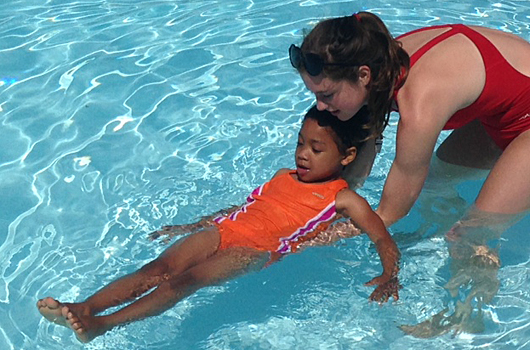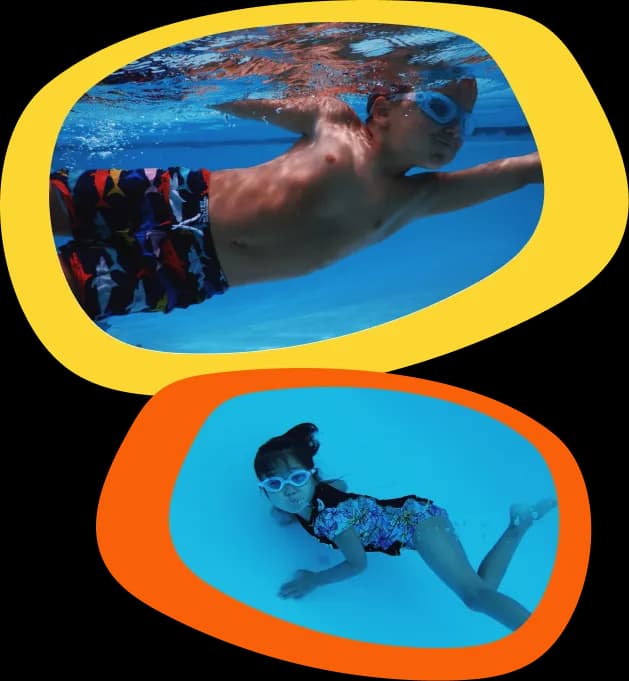Helping Your Autism Spectrum Child Learn to Swim

Written by Sunsational — 7 min read


Even for typically-abled children, swimming can be very calming, and can teach a wide variety of motor skills. When a child has a disability, however, particularly when that disability is in the nature of being on the autism spectrum, swimming often has the added benefits of leading to better behavior and facilitating more effective communication. Children with autism who participate in swimming activities seem to focus better, and also to perform better cognitively and intellectually.
What Is It About Swimming that Benefits Children with Autism?
Swimming is a sensory experience that’s non-threatening to children with autism. It’s non-intrusive – just the soothing feeling of the water. Many children with autism find water to be particularly calming, and may even enjoy sinking to the bottom of the pool where there’s no confusion, no noise, and no confusing rules that have to be followed.
A word of warning, though – sometimes a child who has autism may find the “bottom of the pool” experience so relaxing that he or she may actually forget to come back up to the surface. Parents need to be careful, and so do instructors, because the potential for drowning in such a situation is very real. Even parents of typical children should be vigilant around water, but it’s that much more important for the parent of a child with autism.
How Can I Prepare My Child With Autism for Swimming Lessons?
Parents of children with autism would most of the time prepare them in the same way that they’d prepare a typical child. The rules are pretty standard – no running, no fighting, no horseplay, and make sure that you have an adult’s permission before entering the pool.
Granted, not all children with autism are going to be able to adhere to that kind of structure, and consequently, it may be too difficult to have the child in swimming lessons with other children. Often the noise and activity can be too distracting, and even distressing to the child with autism. If that’s the case, you could consider private swimming lessons for the child. You may be able to find an instructor who has experience in teaching children with autism, and he or she will have the necessary skills to break down the lessons into easy-to-understand components that your child will be able to respond to effectively.
Are There Other Options Besides Private Lessons?
If the cost of private swimming lessons is prohibitive, or if there are other reasons why they’re not an option for your child (difficulty coping with strangers, for example), the next best option would be for you to teach your child how to swim. No one knows better than you what your child with autism is able to handle in terms of type and duration of instruction. You may find it useful to spend some time with a trained instructor who can offer tips and suggestions on how to handle your child’s swimming lessons. The main thing is to get started as soon as possible, not only for the therapeutic value of swimming lessons, but because children with autism are just as vulnerable (if not more so) to hazards in the water as typical children who don’t know how to swim.
Share on socials




